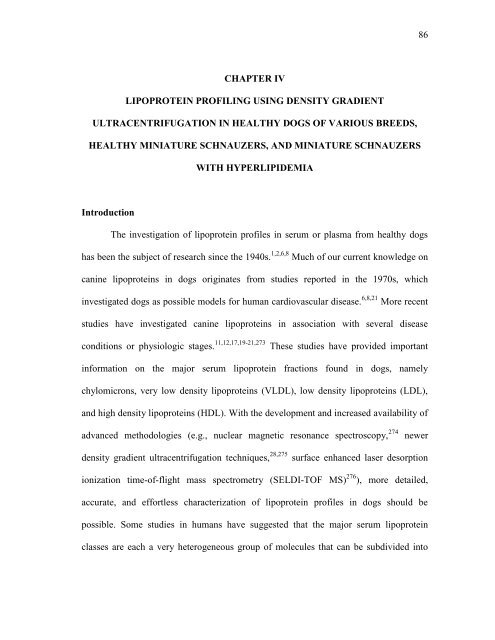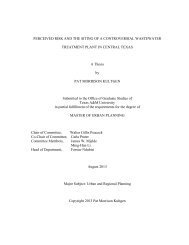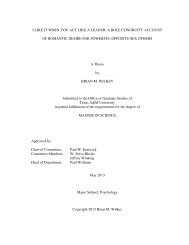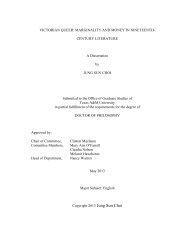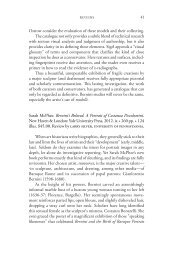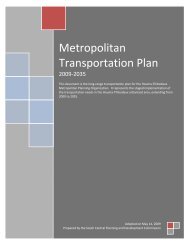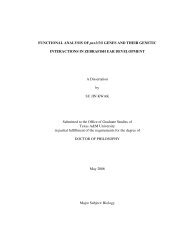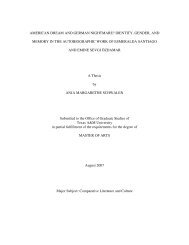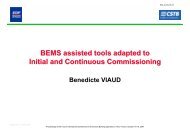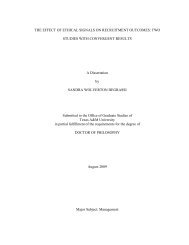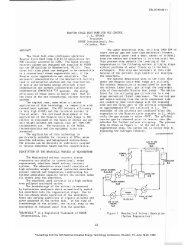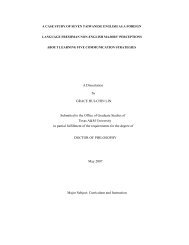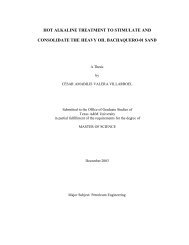INVESTIGATIONS INTO HYPERLIPIDEMIA AND ITS POSSIBLE ...
INVESTIGATIONS INTO HYPERLIPIDEMIA AND ITS POSSIBLE ...
INVESTIGATIONS INTO HYPERLIPIDEMIA AND ITS POSSIBLE ...
Create successful ePaper yourself
Turn your PDF publications into a flip-book with our unique Google optimized e-Paper software.
86<br />
CHAPTER IV<br />
LIPOPROTEIN PROFILING USING DENSITY GRADIENT<br />
ULTRACENTRIFUGATION IN HEALTHY DOGS OF VARIOUS BREEDS,<br />
HEALTHY MINIATURE SCHNAUZERS, <strong>AND</strong> MINIATURE SCHNAUZERS<br />
WITH <strong>HYPERLIPIDEMIA</strong><br />
Introduction<br />
The investigation of lipoprotein profiles in serum or plasma from healthy dogs<br />
has been the subject of research since the 1940s. 1,2,6,8 Much of our current knowledge on<br />
canine lipoproteins in dogs originates from studies reported in the 1970s, which<br />
investigated dogs as possible models for human cardiovascular disease. 6,8,21 More recent<br />
studies have investigated canine lipoproteins in association with several disease<br />
conditions or physiologic stages. 11,12,17,19-21,273 These studies have provided important<br />
information on the major serum lipoprotein fractions found in dogs, namely<br />
chylomicrons, very low density lipoproteins (VLDL), low density lipoproteins (LDL),<br />
and high density lipoproteins (HDL). With the development and increased availability of<br />
advanced methodologies (e.g., nuclear magnetic resonance spectroscopy, 274<br />
newer<br />
density gradient ultracentrifugation techniques, 28,275 surface enhanced laser desorption<br />
ionization time-of-flight mass spectrometry (SELDI-TOF MS) 276 ), more detailed,<br />
accurate, and effortless characterization of lipoprotein profiles in dogs should be<br />
possible. Some studies in humans have suggested that the major serum lipoprotein<br />
classes are each a very heterogeneous group of molecules that can be subdivided into


